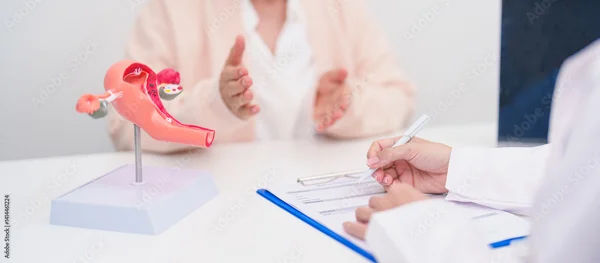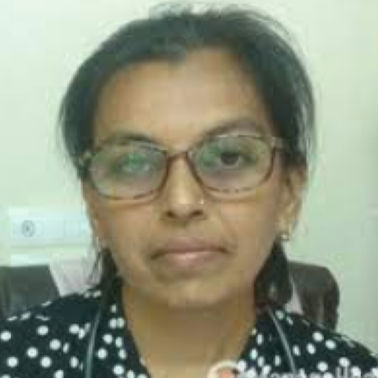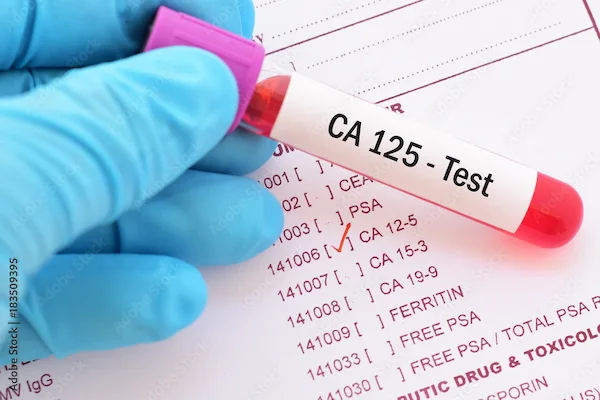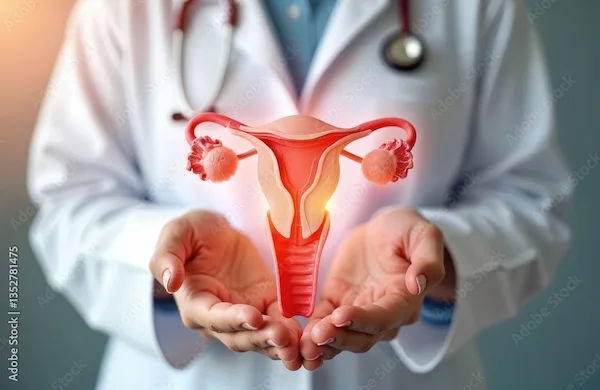Estrogen After Menopause And Hysterectomy
Estrogen levels naturally decline after menopause and hysterectomy, affecting many aspects of health. Learn about the role of estrogen, symptoms of low levels, and treatment options to manage these changes.

Written by Dr.Sonia Bhatt
Last updated on 6th Jul, 2025

Introduction
Menopause and hysterectomy are significant life events that bring about hormonal changes, particularly in estrogen levels. These changes can impact physical health, emotional well-being, and overall quality of life. If you or a loved one is going through this phase, understanding estrogen’s role and how to manage its decline can help you navigate this transition smoothly.
What Happens to Estrogen After Menopause and Hysterectomy?
Here’s what happens to estrogen after menopause and hysterectomy:
1. Estrogen After Menopause
Menopause marks the end of a woman’s menstrual cycles, typically occurring between ages 45 and 55. During this time, the ovaries gradually produce less estrogen and progesterone, leading to symptoms like:
Hot flashes
Night sweats
Vaginal dryness
Mood swings
Sleep disturbances
Bone density loss (increasing osteoporosis risk)
2. Estrogen After Hysterectomy
A hysterectomy (removal of the uterus) may or may not involve removing the ovaries:
With Ovaries Intact (Partial Hysterectomy): Estrogen production continues until natural menopause.
With Ovaries Removed (Total Hysterectomy): Estrogen levels drop suddenly, causing surgical menopause, which may bring more intense symptoms than natural menopause.
To Know More Consult Top Gynaecologists
How Does Low Estrogen Affect Health?
Estrogen plays a crucial role in:
Bone Health: Helps maintain bone density; low levels increase osteoporosis risk.
Heart Health: Protects blood vessels; decline may raise cardiovascular risks.
Vaginal and Urinary Health: Low estrogen leads to dryness, discomfort, and urinary infections.
Mood and Cognitive Function: Fluctuations can cause irritability, anxiety, or memory issues.
Managing Estrogen Decline: Tips and Treatment Options
Here are some effective tips and treatment options to help manage estrogen decline:
1. Hormone Replacement Therapy (HRT)
HRT supplements estrogen to relieve symptoms and reduce long-term risks like osteoporosis. Types include:
Systemic HRT (Pills/Patches): For hot flashes, bone protection.
Vaginal Estrogen (Creams/Rings): For dryness and urinary issues.
Consult a doctor before starting HRT, as it may not be suitable for everyone (e.g., those with a history of breast cancer or blood clots).
2. Lifestyle Changes
Diet: Include calcium-rich foods (dairy, leafy greens) and vitamin D (sunlight, fatty fish) for bone health.
Exercise: Weight-bearing activities (walking, yoga) strengthen bones and improve mood.
Hydration & Vaginal Moisturizers: Combat dryness with water intake and over-the-counter lubricants.
Stress Management: Meditation, deep breathing, and adequate sleep help with mood swings.
3. Natural Remedies (Consult Your Doctor First)
Phytoestrogens: Found in soy, flaxseeds, and legumes, these plant compounds mimic estrogen.
Black Cohosh & Evening Primrose Oil: Some women find relief from hot flashes, though evidence is mixed.
When to See a Doctor?
If symptoms interfere with daily life, consult a specialist. Apollo 24|7 offers expert consultations and diagnostic tests to help manage post-menopausal and post-hysterectomy health.
Conclusion
Menopause and hysterectomy bring hormonal shifts, but with the right care—whether through HRT, lifestyle adjustments, or natural remedies—you can maintain a healthy, fulfilling life. Always seek medical advice before making significant changes to your health routine.
Book a consultation with an Apollo specialist today for personalised care. Stay informed, stay healthy!
Consult Top Gynaecologists
To Know More Consult Top Gynaecologists

Dr. Veena H
Obstetrician and Gynaecologist
16 Years • MBBS DGO
Bangalore
Apollo 24|7 Clinic - Karnataka, Bangalore

Dr Swatika Kumari
Obstetrician and Gynaecologist
19 Years • MBBS, DGO, DNB Obstetrics & Gynaecology
Nashik
Apollo 24|7 Clinic - Maharashtra, Nashik

Dr. Priyanka Surisetty
Obstetrician and Gynaecologist
8 Years • MBBS, DGO
Visakhapatnam
Apollo 24|7 Clinic - Andhra Pradesh, Visakhapatnam

Dr. Mona Yadav
Obstetrician and Gynaecologist
19 Years • MBBS, MD (Obstetrics & Gynaecology)
Dombivli
Nulife multispeciality, Dombivli

Dr. Asha Rani Singh
Obstetrician and Gynaecologist
24 Years • MBBS DGO
Delhi
Dr Asha Rani Singh Clinic, Delhi
Consult Top Gynaecologists

Dr. Veena H
Obstetrician and Gynaecologist
16 Years • MBBS DGO
Bangalore
Apollo 24|7 Clinic - Karnataka, Bangalore

Dr Swatika Kumari
Obstetrician and Gynaecologist
19 Years • MBBS, DGO, DNB Obstetrics & Gynaecology
Nashik
Apollo 24|7 Clinic - Maharashtra, Nashik

Dr. Priyanka Surisetty
Obstetrician and Gynaecologist
8 Years • MBBS, DGO
Visakhapatnam
Apollo 24|7 Clinic - Andhra Pradesh, Visakhapatnam

Dr. Mona Yadav
Obstetrician and Gynaecologist
19 Years • MBBS, MD (Obstetrics & Gynaecology)
Dombivli
Nulife multispeciality, Dombivli

Dr. Asha Rani Singh
Obstetrician and Gynaecologist
24 Years • MBBS DGO
Delhi
Dr Asha Rani Singh Clinic, Delhi




